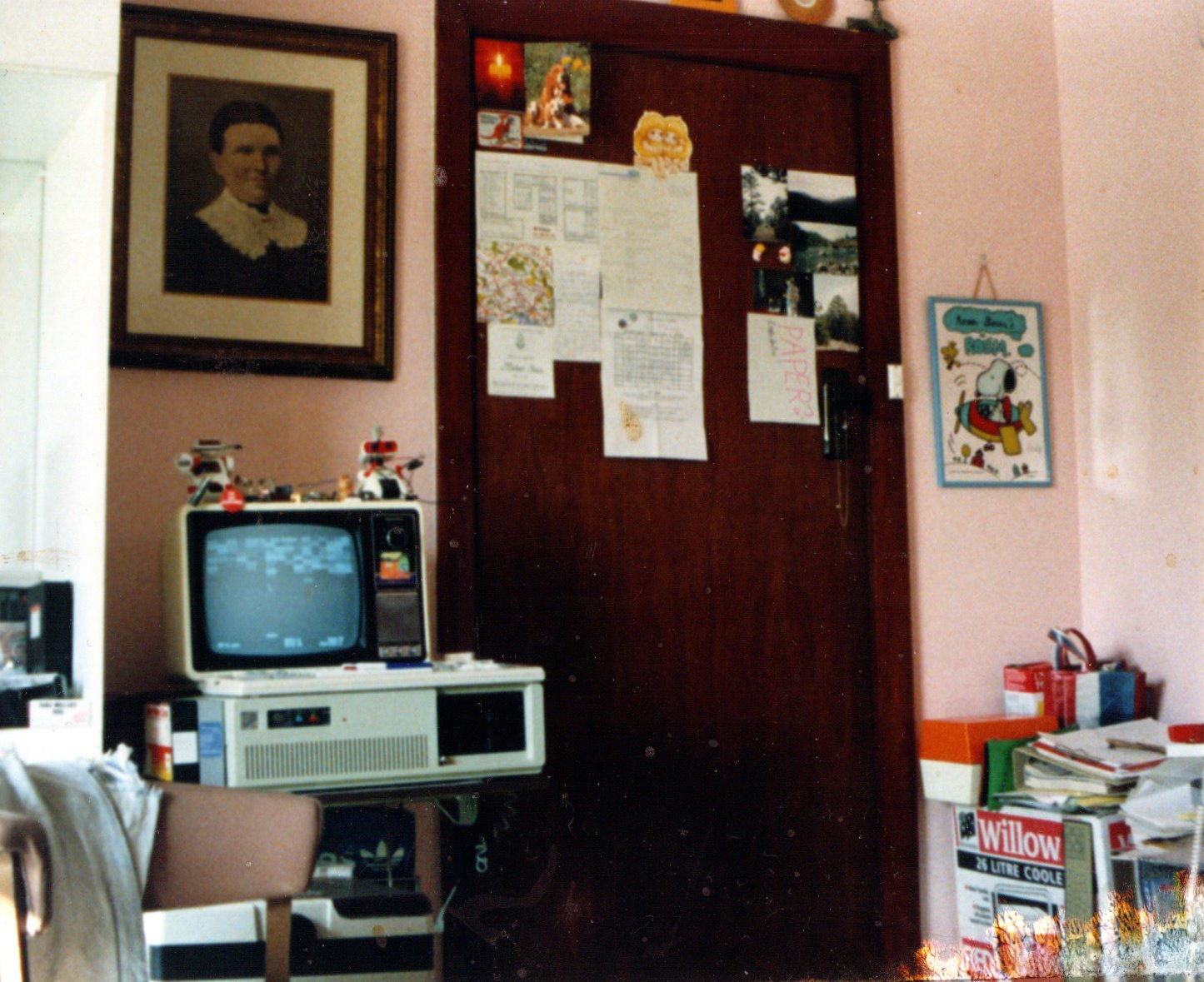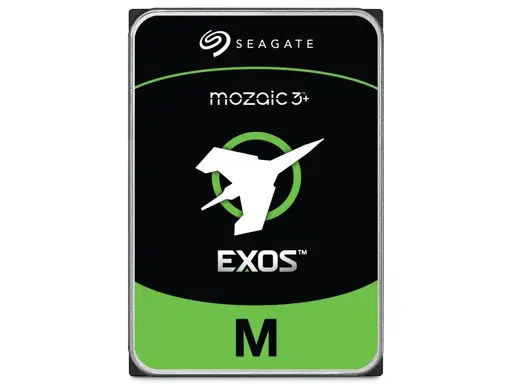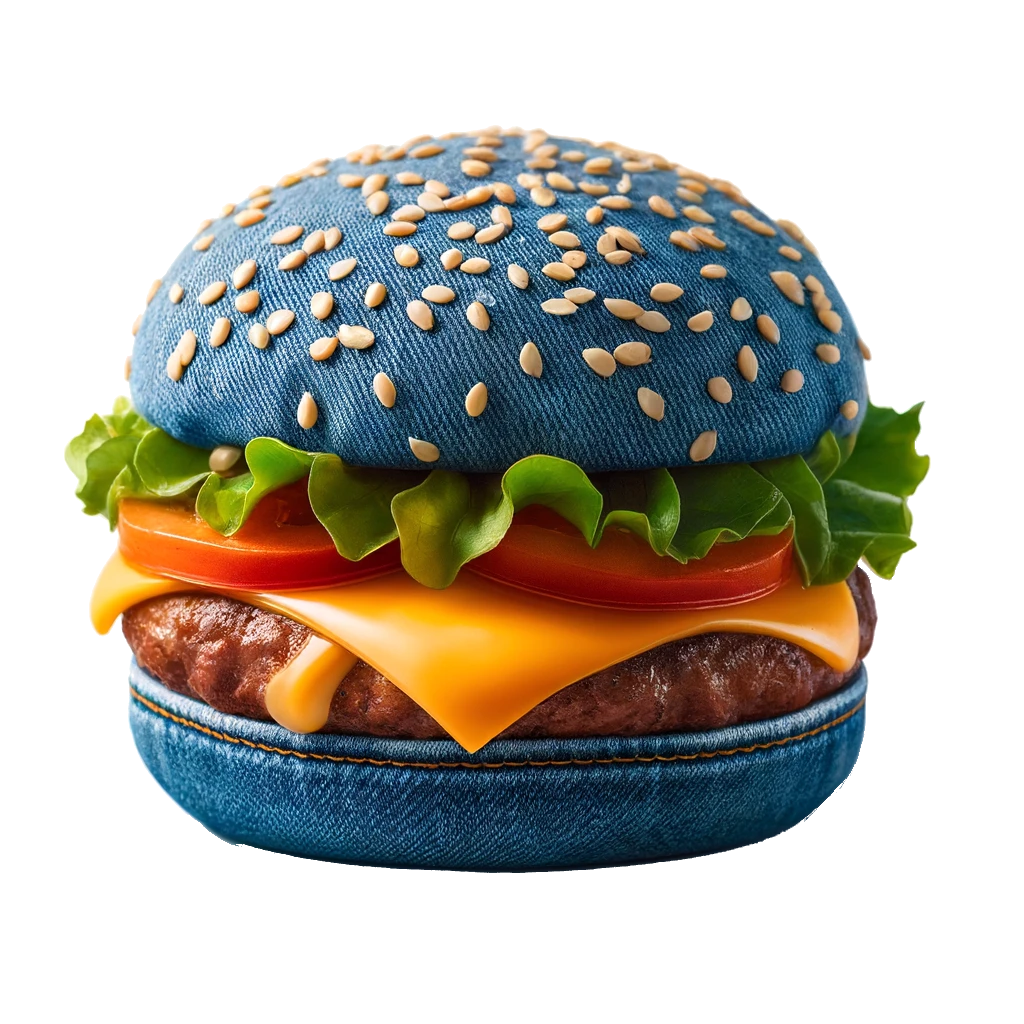deleted by creator
Same but western digital, 13gb that failed and lost all my data 3 time and 3rd time was outside the warranty! I had paid 500$, the most expensive thing I had ever bought until tgat day.
Heck yeah.
Always a fan of more storage. Speed isn’t everything!
HP servers have more fans!
Just one would be a great backup, but I’m not ready to run a server with 30TB drives.
I’m here for it. The 8 disc server is normally a great form factor for size, data density and redundancy with raid6/raidz2.
This would net around 180TB in that form factor. Thats would go a long way for a long while.
I dunno if you would want to run raidz2 with disks this large. The resilver times would be absolutely bazonkers, I think. I have 24 TB drives in my server and run mirrored vdevs because the chances of one of those drives failing during a raidz2 resilver is just too high. I can’t imagine what it’d be like with 30 TB disks.
Yeah I agree. I just got 20tb in mine. Decided to just z2, which in my case should be fine. But was contemplating the same thing. Going to have to start doing z2 with 3 drives in each vdev lol.
Is RAID2 ever the right choice? Honestly, I don’t touch anything outside of 0, 1, 5, 6, and 10.
Edit: missed the z, my bad. Raidz2 is fine.
raidz2 is analogous to RAID 6. It’s just the ZFS term for double parity redundancy.
A few years ago I had a 12 disk RAID6 array and the power distributor (the bit between the redundant PSUs and the rest of the system) went and took 5 drives with them, lost everything on there. Backup is absolutely essential but if you can’t do that for some reason at least use RAID1 where you only lose part of your data if you lose more than 2 drives.
Great, can’t wait to afford one in 2050.
Fleebay? Yup, me too!
$4.99 for the drive plus $399.00 s&h
I can’t wait for datacenters to decommission these so I can actually afford an array of them on the second-hand market.
Home Petabyte Project here I come (in like 3-5 years 😅)
better start preparing with a 10G network!
Way ahead of you… I have a Brocade ICX6650 waiting to be racked up once I’m not limited to just the single 15A circuit my rack runs off of currently 😅
Hopefully 40G interconnect between it and the main switch everything using now will be enough for the storage nodes and the storage network/VLAN.
Exactly, my nas is currently made up of decommissioned 18tb exos. Great deal and I can usually still get them rma’d the handful of times they fail
Nice, where do you get yours?
also curious, buying new is getting too pricey for me
I personally use goharddrive and serverpartdeals on eBay and have had good luck, but I’m always looking for others
Never used goharddrive but can def endorse spd
Where is a good place to search for decommissioned ones?
Serverpartdeals has done me well, drives often come new enough that they still have a decent amount of manufacturers warranty remaining (exos is 5yr) and depending on the drive you buy from them spd will rma a drive for 5 years from purchase (but not always, depends on the listing, read the fine print).
I have gotten 2 bad drives from them out of 18 over 5 years or so. Both bad drives were found almost immediately with basic maintenance steps prior to adding to the array (zeroing out the drives, badblocks) and both were rma’d by seagate within 3-5 days because they were still within the mfr warranty.
If you’re running a gigantic raid array like me (288tb and counting!) it would be wise to recognize that rotational hard drives are doomed and you need a robust backup solution that can handle gigantic amounts of data long term. I have a tape drive for that because I got it cheap at an electronics recycler sold as not working (thankfully it was an easy fix) but this is typically a super expensive route. If you only have like 20tb then you can look into stuff like cloud services, bluray, redundant hard drive, etc. or do like I did in the beginning and just accept that your pirated anime collection might go poof one day lol
What kind of tape drive are you using? My array isn’t as large as yours (120tb physical), but it’s big enough that my only real options for backup are tape or a whole secondary array for just backup.
Based on what I’ve seen, my options are a prohibitively large number tapes with an older LTO standard or prohibitively expensive tapes with a newer LTO standard.
My current backup strategy consists of automated backups to Backblaze B2 for the really important stuff like personal documents or projects and hoping my ZFS array doesn’t fail for everything else.
I have an ibm qualstar lto8 drive. I got it because I gambled, it was cheap because it was throwing an error (I forget what the number was) but it was one that indicates an issue in the tape path. I was able to get the price to $150 because I was buying some other stuff and because ultimately if the head was toast it was basically useless. But I got lucky and cleaning the head and tape path brought it back to life. Dunno how long it will last. I’ll live with it though because buying one that’s confirmed working can be thousands
You’re right that lto8 tapes are pricey but they’re quite a bit cheaper than building an equivalent array for backup that is significantly more reliable long term. A tape is about 12tb and $40-50, although sometimes they pop up cheaper. I generally don’t back up stuff continually with this method, I back up newer files that haven’t been synced to tape once every six weeks or so. It’s also something that you can buy a bit at a time to soften the financial blow of course. Maybe if you get a fancy carousel drive you’d want to fill it up but frankly that just seems like it would break much easier
More modern tapes have support for ltfs and I can basically use it like an external hard drive that way. So it’s pretty much I pop a tape in, once a week or so I sync new files to said tape, then as it gets full I swap it for a new tape. Towards the end I print a directory of what’s on it because admittedly doing it this way is messy. But my intention with this is to back up my “medium critical” files. Stuff that if I lost I would be frustrated over, but not heartbroken. Movies and TV shows that I did custom muxes of to have my ideal subtitles, audio tracks, etc. all my dockers so stuff like my Jellyfin watch status and komga library stay intact, stuff like that. That takes up the bulk of my nas and my primary concerns are either the array fully failing or significant bit rot, and if either of those occur I would rebuild from scratch and just copy all the tapes back over anyway so the messy filing isn’t really a huge issue.
I also do sometimes make it a point to copy harder to find files onto at least 2 tapes on the outside chance a tape goes bad. It’s unlikely given I only buy new tapes and store them properly (I even go to the effort to store them offsite just in case my house burns down) but you never know I suppose
The advertised values of tape capacity is crap for this use. You’ll see like lto 8 has a native capacity of 12tb but a compressed capacity of 30tb per disk! And the disks will frequently just say 30tb on them. That’s nonsense here. Maybe for a more typical server environment where they’re storing databases and text files and shit but compressed movies and music? Not so much. I get some advantage because I keep most of my stuff in archival quality (remux/flac/etc) but even then I still usually dont get anywhere near 30tb
It’s pretty slow. Not the end of the world but just something to keep in mind. Lto8 is supposed to be 360MBps for uncompressed and 750MBps for compressed data but I don’t seem to hit those speeds at all. I’m not really in a rush though and everything verifies fine and works after copying back over so I’m not too worried. But it can take like 10-14 hours to fill a tape. If I ever do have to rebuild the array it will take AGES
For my “absolutely priceless” data I have other more robust backup solutions that are basically the same as yours (literally down to using backblaze, ha).
You got an incredible deal on your tape drive. For LTO8 drives, I’m seeing “for parts only” drives sold for around $500. I’d be willing to throw away $100 or $200 on the possibility that I could repair a drive; $500 is a bit too much. It looks like LTO6 is more around what my budget would be.; it would require a much larger number of tapes, but not excessively so.
I remember when BD-R was a reasonable solution for backup. There’s no way that’s true now. It really seems like hard drive capacity has far outpaced removable media. If most people are streaming everything, those of us who actually want to save their data locally are really the minority these days. There’s just not as much of a compelling reason for companies to develop cheap high-capacity removable discs.
I’m sure I’ll invest in a tape backup solution eventually, but for now, at least I have ZFS with paranoid RAIDZ.
eBay sellers that have tons of sales and specialize. You can learn to read between the lines and see that decom goods are what they do.
SaveMyServer is a perfect example. Don’t know if they sell drives though.
Just a reminder: These massive drives are really more a “budget” version of a proper tape backup system. The fundamental physics of a spinning disc mean that these aren’t a good solution for rapid seeking of specific sectors to read and write and so forth.
So a decent choice for the big machine you backup all your VMs to in a corporate environment. Not a great solution for all the anime you totally legally obtained on Yahoo.
Not sure if the general advice has changed, but you are still looking for a sweet spot in the 8-12 TB range for a home NAS where you expect to regularly access and update a large number of small files rather than a few massive ones.
HDD read rates are way faster than media playback rates, and seek times are just about irrelevant in that use case. Spinning rust is fine for media storage. It’s boot drives, VM/container storage, etc, that you would want to have on an SSD instead of the big HDD.
Oh hey, I did something right. That’s kinda neat
I am troubled in my heart. I would not have been told so in this way.
Not sure what you’re going on about here. Even these discs have plenty of performance for read/wrote ops for rarely written data like media. They have the same ability to be used by error checking filesystems like zfs or btrfs, and can be used in raid arrays, which add redundancy for disc failure.
The only negatives of large drives in home media arrays is the cost, slightly higher idle power usage, and the resilvering time on replacing a bad disc in an array. Your 8-12TB recommendation already has most of these negatives. Adding more space per disc is just scaling them linearly.
Additionally, most media is read in a contiguous scan. Streaming media is very much not random access.
Your typical access pattern is going to be seeking to a chunk, reading a few megabytes of data in a row for the streaming application to buffer, and then moving on. The ~10ms of access time at the start are next to irrelevant. Particularly when you consider that the OS has likely observed that you have unutilized RAM and loads the entire file into the memory cache to bypass the hard drive entirely.
The fundamental physics of a spinning disc mean that these aren’t a good solution for rapid seeking of specific sectors to read and write and so forth.
It’s no ssd but is no slower than any other 12TB drive. It’s not shingled but HAMR. The sectors are closer together so it has even better seeking speed than a regular 12TB drive.
Not a great solution for all the anime you totally legally obtained on Yahoo.
???
It’s absolutely perfect for that. Even if it was shingled tech, that only slows write speeds. Unless you are editing your own video, write seek times are irrelevant. For media playback use only consistent read speed matters. Not even read seek matters except in extreme conditions like comparing tape seek to drive seek. You cannot measure 10 ms difference between clicking a video and it starting to play because of all the other delays caused by media streaming over a network.
But that’s not even relevant because these have faster read seeking than older drives because sectors are closer together.
I’m real curious why you say that. I’ve been designing systems with high IOPS data center application requirements for decades so I know enterprise storage pretty well. These drives would cause zero issues for anyone storing and watching their media collection with them.
So I’m guessing you don’t really know what you’re talking about.
honestly curious, why the hell was this downvoted? I work in this space and I thought this was still the generally accepted advice?
Because everything he said was wrong?
Because people are thinking through specific niche use cases coupled with “Well it works for me and I never do anything ‘wrong’”.
I’ll definitely admit that I made the mistake of trying to have a bit of fun when talking about something that triggers the dunning kruger effect. But people SHOULD be aware of how different use patterns impacts performance, how that performance impacts users, and generally how different use patterns impact wear and tear of the drive.
Come on man, everything, and mean everything you said is wrong.
Budget tape backup?
No, you can’t even begin to compare drives to tape. They’re completely different use cases. A hard drive can contain a backup but it’s not physically robust to be unplugged, rotated off site , and put into long term storage like tape. You might as well say a Honda Accord is a budget Semi tractor trailer.
Then you specifically called out personal downloads of anime as a bad use case. That’s absolutely wrong in all cases.
It is absurd to imply that everyone else except for you is less knowledgeable and using a niche case except you.
Not a great solution for all the anime you totally legally obtained on Yahoo.
Mainly because of that. Spinning rust drives are perfect for large media libraries.
There isn’t a hard drive made in the last 15 years that couldn’t handle watching media files. Even the SMR crap the manufacturers introduced a while back could do that without issue. For 4k video you’re going to see average transfer speeds of 50MB/s and peak in the low 100MB/s range, and that’s for high quality videos. Write speed is irrelevant for media consumption, and unless your hard drive is ridiculously fragmented, seek speed is also irrelevant. Even an old 5400 RPM SATA drive is going to be able to handle that load 99.99% of the time. And anything lower than 4K video is a slam dunk.
Everything I just said goes right out the window for a multi-user system that’s streaming multiple media files concurrently, but the vast majority of people never need to worry about that.
How many platters?!
30 to 32 platters. You can write a file on the edge and watch it as it speeds back to the future!
Good. However, 2 x 16TB Seagate HDDs still cheaper, isn’t it?
These drives aren’t for people who care how much they cost, they’re for people who have a server with 16 drive bays and need to double the amount of storage they had in them.
(Enterprise gear is neat: it doesn’t matter what it costs, someone will pay whatever you ask because someone somewhere desperately needs to replace 16tb drives with 32tb ones.)
In addition to needing to fit it into the gear you have on hand, you may also have limitations in rack space (the data center you’re in may literally be full), or your power budget.
Seagate. The company that sold me an HDD which broke down two days after the warranty expired.
No thanks.
laughing in Western Digital HDD running for about 10 years nowDid you buy consumer Barracuda?
Western digital so good
I currently have an 8 year old Seagate external 4TB drive. Should I be concerned?
I had the opposite experience. My Seagates have been running for over a decade now. The one time I went with Western Digital, both drives crapped out in a few years.
I have 10 year old WDs and 8 year old Seagates still kicking. Depends on the year. Some years one is better than others.
Funny because I have a box of Seagate consumer drives recovered from systems going to recycling that just won’t quit. And my experience with WD drives is the same as your experience with Seagate.
Edit: now that I think about it, my WD experience is from many years ago. But the Seagate drives I have are not new either.
Survivorship bias. Obviously the ones that survived their users long enough to go to recycling would last longer than those that crap out right away and need to be replaced before the end of the life of the whole system.
I mean, obviously the whole thing is biased, if objective stats state that neither is particularly more prone to failure than the other, it’s just people who used a different brand once and had it fail. Which happens sometimes.
Ah I wasn’t thinking about that. I got the scrappy spinny bois.
I’m fairly sure me and my friends had a bad batch of Western digitals too.
Had the same experience and opinion for years, they do fine on Backblaze’s drive stats but don’t know that I’ll ever super trust them just 'cus.
That said, the current home server has a mix of drives from different manufacturers including seagate to hopefully mitigate the chances that more than one fails at a time.
Here i am still rocking 6TB.
This is for cold and archival storage right?
I couldn’t imagine seek times on any disk that large. Or rebuild times…yikes.
For a full 32GB at the max sustained speed(275MB/s), 32ish hours to transfer a full amount, 36 if you assume 250MB/s the whole run. Probably optimistic. CPU overhead could slow that down in a rebuild. That said in a RAID5 of 5 disks, that is a transfer speed of about 1GB/s if you assume not getting close to the max transfer rate. For a small business or home NAS that would be plenty unless you are running greater than 10GiBit ethernet.
Random access times are probably similar to smaller drives but writing the whole drive is going to be slow
up your block size bro 💪 get them plates stacking 128KB+ a write and watch your throughput gains max out 🏋️ all the ladies will be like🙋♀️. Especially if you get those reps sequentially it’s like hitting the juice 💉 for your transfer speeds.
This is my favorite post ever.
Definitely not for either of those. Can get way better density from magnetic tape.
They say they got the increased capacity by increasing storage density, so the head shouldn’t have to move much further to read data.
You’ll get further putting a cache drive in front of your HDD regardless, so it’s vaguely moot.
Everybody taking shit about Seagate here. Meanwhile I’ve never had a hard drive die on me. Eventually the capacity just became too little to keep around and I got bigger ones.
Oldest I’m using right now is a decade old, Seagate. Actually, all the HDDs are Seagate. The SSDs are Samsung. Granted, my OS is on an SSD, as well as my most used things, so the HDDs don’t actually get hit all that much.
Yeah, same. I switched to seagate after 3 WD drives failed in less then 3 years. Never had problems since.
I had 3 drives from seagate (including 1 enterprise) that died or got file-corruption issues when I gave up and switched to SSDs entirely…
I’ve had a Samsung SSD die on me, I’ve had many WD drives die on me (also the last drive I’ve had die was a WD drive), I’ve had many Seagate drives die on me.
Buy enough drives, have them for a long enough time, and they will die.
Seagate had some bad luck with their 3TB drives about 15 years ago now if memory serves me correctly.
Since then Western Digital (the only other remaining HDD manufacturer) pulled some shenanigans with not correctly labeling different technologies in use on their NAS drives that directly impacted their practicality and performance in NAS applications (the performance issues were particularly agregious when used in a zfs pool)
So basically pick your poison. Hard to predict which of the duopoly will do something unworthy of trusting your data upon, so uh…check your backups I guess?
That decade old one is 3TB. 😅
Unfortunately, I have about 10 dead 3TB drives sitting around in my closet. I took the sacrifice so you don’t have to :-)
at least you have a bunch of nice coasters and cool magnets now.
Thanks. 👍
Had good impressions and experiences with Toshiba drives. Chugged along quiet nicely.
Yeah our file server has 17 Toshiba drives in the 10/14 TiB sizes ranging from 2-4 years of power-on age and zero failures so far (touch wood).
Of our 6 Seagate drives (10 TiB), 3 of them died in the 2-4 year age range, but one is still alive 6 years later.
We’re in Japan and Toshiba is by far the cheapest here (and have the best support - they have advance replacement on regular NAS drives whereas Seagate takes 2 weeks replacement to ship to and from a support center in China!) so we’ll continue buying them.
Ah I thought I had remembered their hard drive division being aquired but I was wrong! Per Wikipedia:
At least 218 companies have manufactured hard disk drives (HDDs) since 1956. Most of that industry has vanished through bankruptcy or mergers and acquisitions. None of the first several entrants (including IBM, who invented the HDD) continue in the industry today. Only three manufacturers have survived—Seagate, Toshiba and Western Digital
I thought I read somewhere that larger drives had a higher chance of failure. Quick look around and that seems to be untrue relative to newer drives.
One problem is that larger drives take longer to rebuild the RAID array when one drive needs replacing. You’re sitting there for days hoping that no other drive fails while the process goes. Current SATA and SAS standards are as fast as spinning platters could possibly go; making them go even faster won’t help anything.
There was some debate among storage engineers if they even want drives bigger than 20TB. The potential risk of data loss during a rebuild is worth trading off density. That will probably be true until SSDs are closer to the price per TB of spinning platters (not necessarily the same; possibly more like double the price).
If you’re writing 100 MB/s, it’ll still take 300,000 seconds to write 30TB. 300,000 seconds is 5,000 minutes, or 83.3 hours, or about 3.5 days. In some contexts, that can be considered a long time to be exposed to risk of some other hardware failure.
Yep. It’s a little nerve wracking when I replace a RAID drie in our NAS, but I do it before there’s a problem with a drive. I can mount the old one back in, or try another new drive. I’ve only ever had one new DOA, here’s hoping those stay few and far between.
What happened to using different kinds of drives in every mirrored pair? Not best practice any more? I’ve had Seagates fail one after another and the RAID was intact because I paired them with WD.
You can, but you might still be sweating bullets while waiting for the rebuild to finish.
My first HDD had a capacity of 42MB. Still a short way to go until factor 10⁶.
My first HD was a 20mb mfm drive :). Be right back, need some “just for men” for my beard (kidding, I’m proud of it).
So was mine, but the controller thought it was 10mb so had to load a device driver to access the full size.
Was fine until a friend defragged it and the driver moved out of the first 10mb. Thereafter had to keep a 360kb 5¼" drive to boot from.
That was in an XT.
it honestly could have been a 10mb, I don’t even remember. only thing I really do remember is thinking it was interesting how it used the floppy and second cable, and how the sound it made was used in every 90’s and early 2000’s tv and movie show as generic computer noise :)
You have me beat on the XT, mine was a 286, although it did replace an Apple 2e (granted both were aquired several years after they were already considered junk in the 386 era).
I remember the sound. Also, it was on a three wheel table, and the whole thing would shake when defragging.

Was fine until a friend defragged it and the driver moved out of the first 10mb
Oh noooo 😭
My first one was a Seagate ST-238R. 32 MB of pure storage, baby. For some reason I thought we still needed the two disk drives as well, but I don’t remember why.
“Oh what a mess we weave when we amiss interleave!”
We’d set the interleave to, say, 4:1 (four revolutions to read all data in a track, IIRC), because the hard drive was too fast for the CPU to deal with the data… ha.
whoa
Dude

















